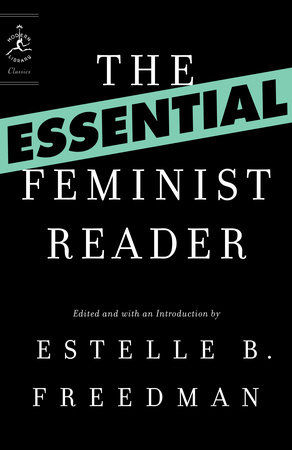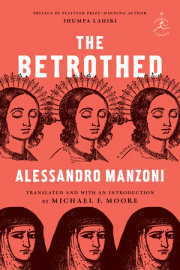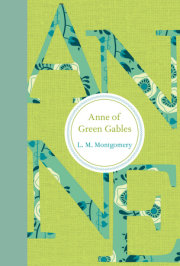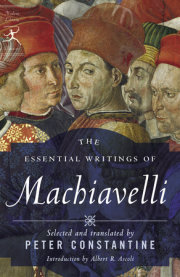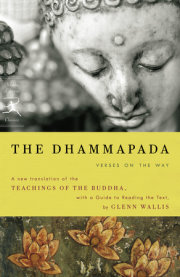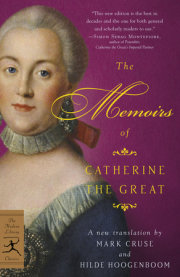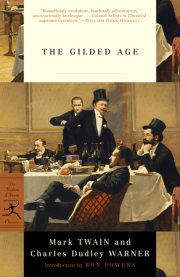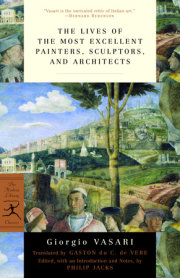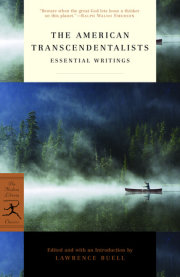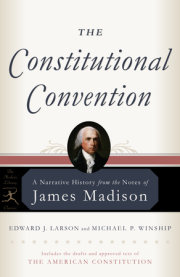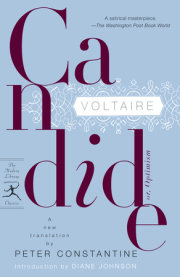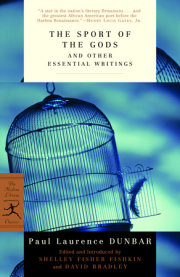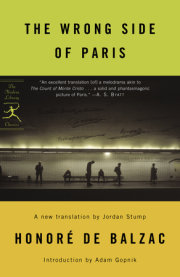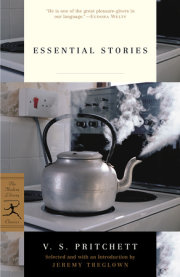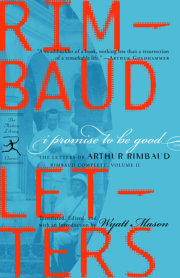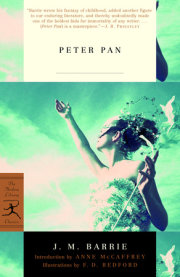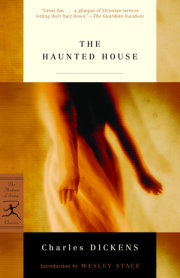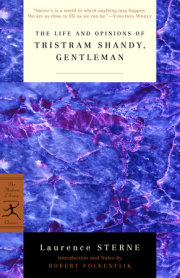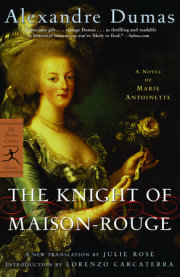Christine de Pizan
(1365-c. 1430)
The Book of the City of Ladies
(France, 1405)
For centuries, European writers grappled with the querelles desfemmes, or the "woman question," in response to the work of Christine de Pizan. At a time when both the Catholic Church andmedieval states reinforced patriarchal authority in the family, dePizan questioned the biblical and natural justifications for men'srule over women. Whether cursed by the sin of Eve or presumed to be intellectually as well as physically weaker then men, women generally did not merit education. During the Renaissance, however, women whowished to extend humanist ideas about the importance of education to their own sex defended female intellectual capacity. Born in Veniceand raised in Paris, Christine de Pizan read widely in the subjects ofphilosophy and science (her father was a scholar). When she became ayoung widow, she put her education to good use, supporting her family as a writer. In Epistre au dieu d'Amours (Poems of Cupid, God ofLove) (1399), she defended Eve. In The Book of the City of Ladies, thecharacters Christine converses with are three Ladies-Reason, Rectitude, and Justice-who refute contemporary theories of female inferiority. The Ladies also catalogue the learned women of the Bibleand of classical myth, as well as the women who illustrate female intellectual capability in history. Over the next six hundred years, feminists continued to place female education at the foundation oftheir quest to achieve women's full humanity.
One day as I was sitting alone in my study surrounded by books on all kinds of subjects, devoting myself to literary studies, my usual habit, my mind dwelt at length on the weighty opinions of various authors whom I had studied for a long time. I looked up from my book,having decided to leave such subtle questions in peace and to relax by reading some light poetry. With this in mind, I searched for some small book. By chance a strange volume came into my hands, not one of my own, but one which had been given to me along with some others.When I held it open and saw from its title page that it was by Mathéolus, I smiled, for though I had never seen it before, I had often heard that like other books it discussed respect for women. I thought I would browse through it to amuse myself. I had not been reading for very long when my good mother called me to refresh myself with some supper, for it was evening. Intending to look at it the next day, I put it down. The next morning, again seated in my study as was my habit, I remembered wanting to examine this book by Mathéolus. I started to read it and went on for a little while. Because the subject seemed to me not very pleasant for people who do not enjoy lies, andof no use in developing virtue or manners, given its lack of integrity in diction and theme, and after browsing here and there and reading the end, I put it down in order to turn my attention to more elevated and useful study. But just the sight of this book, even though it was of no authority, made me wonder how it happened that so many different men-and learned men among them-have been and are so inclined to express both in speaking and in their treatises and writings so many wicked insults about women and their behavior. Not only one or two and not even just this Mathéolus (for this book had a bad name anyway and was intended as a satire) but, more generally, judging from thetreatises of all philosophers and poets and from all the orators-it would take too long to mention their names-it seems that they all speak from one and the same mouth. They all concur in one conclusion:that the behavior of women is inclined to and full of every vice.Thinking deeply about these matters, I began to examine my characterand conduct as a natural woman and, similarly, I considered other women whose company I frequently kept, princesses, great ladies, womenof the middle and lower classes, who had graciously told me of their most private and intimate thoughts, hoping that I could judge impartially and in good conscience whether the testimony of so many notable men could be true. To the best of my knowledge, no matter how long I confronted or dissected the problem, I could not see or realize how their claims could be true when compared to the natural behaviorand character of women. Yet I still argued vehemently against women, saying that it would be impossible that so many famous men-such solemn scholars, possessed of such deep and great understanding, so clear-sighted in all things, as it seemed-could have spoken falsely on so many occasions that I could hardly find a book on morals where,even before I had read it in its entirety, I did not find severalchapters or certain sections attacking women, no matter who the authorwas. This reason alone, in short, made me conclude that, although my intellect did not perceive my own great faults and, likewise, those ofother women because of its simpleness and ignorance, it was however truly fitting that such was the case. And so I relied more on thejudgment of others than on what I myself felt and knew. I was so transfixed in this line of thinking for such a long time that it seemed as if I were in a stupor. Like a gushing fountain, a series of authorities, whom I recalled one after another, came to mind, along with their opinions on this topic. And I finally decided that God formed a vile creature when He made woman, and I wondered how such aworthy artisan could have deigned to make such an abominable workwhich, from what they say, is the vessel as well as the refuge and abode of every evil and vice. As I was thinking this, a great unhappiness and sadness welled up in my heart, for I detested myself and the entire feminine sex, as though we were monstrosities innature. And in my lament I spoke these words: "Oh, God, how can this be? For unless I stray from my faith, I must never doubt that Your infinite wisdom and most perfect goodness ever created anything which was not good. Did You yourself not create woman in a very special way and since that time did You not give herall those inclinations which it pleased You for her to have? And how could it be that You could go wrong in anything? Yet look at all these accusations which have been judged, decided, and concluded against women. I do not know how to understand this repugnance. If it is so, fair Lord God, that in fact so many abominations abound in the female sex, for You Yourself say that the testimony of two or three witnesses lends credence, why shall I not doubt that this is true? Alas, God,why did You not let me be born in the world as a man, so that all my inclinations would be to serve You better, and so that I would not stray in anything and would be as perfect as a man is said to be? Butsince Your kindness has not been extended to me, then forgive my negligence in Your service, most fair Lord God, and may it not displease You, for the servant who receives fewer gifts from his lordis less obliged in his service." I spoke these words to God in my lament and a great deal more for a very long time in sad reflection,and in my folly I considered myself most unfortunate because God had made me inhabit a female body in this world. . . .
After hearing these things, I replied to the lady [Reason] who spoke infallibly: "My lady, truly has God revealed great wonders in the strength of these women whom you describe. But please enlighten me again, whether it has ever pleased this God, who has bestowed so many favors on women, to honor the feminine sex with the privilege of thevirtue of high understanding and great learning, and whether women ever have a clever enough mind for this. I wish very much to know this because men maintain that the mind of women can learn only a little." She answered, "My daughter, since I told you before, you know quite well that the opposite of their opinion is true, and to show you this even more clearly, I will give you proof through examples. I tell you again-and don't fear a contradiction-if it were customary to send daughters to school like sons, and if they were then taught the natural sciences, they would learn as thoroughly and understand the subtleties of all the arts and sciences as well as sons. And by chance there happen to be such women, for, as I touched on before, just as women have more delicate bodies than men, weaker and less able to perform many tasks, so do they have minds that are freer and sharper whenever they apply themselves."
"My lady, what are you saying? With all due respect, could you dwell longer on this point, please. Certainly men would never admitthis answer is true, unless it is explained more plainly, for they believe that one normally sees that men know more than womendo."
She answered, "Do you know why women know less?"
"Not unless you tell me, my lady."
"Without the slightest doubt, it is because they are not involved in many different things, but stay at home, where it is enough for them to run the household, and there is nothing which so instructs a reasonable creature as the exercise and experience of many different things."
"My lady, since they have minds skilled in conceptualizing and learning, just like men, why don't women learn more?"
She replied, "Because, my daughter, the public does not require them to get involved in the affairs which men are commissioned to execute, just as I told you before. It is enough for women to performthe usual duties to which they are ordained. As for judging from experience, since one sees that women usually know less than men, that therefore their capacity for understanding is less, look at men who farm the flatlands or who live in the mountains. You will find that in many countries they seem completely savage because they are so simple-minded. All the same, there is no doubt that Nature provided them with the qualities of body and mind found in the wisest and most learned men. All of this stems from a failure to learn, though, just as I told you, among men and women, some possess better minds than others. Let me tell you about women who have possessed great learning and profound understanding and treat the question of the similarity of women's minds to men's." . . . "My lady, I see the endless benefits which have accrued to the world through women and nevertheless these men claim that there is no evil which has not come into the world because of them."
"Fair friend," she answered, "you can see from what I have already said to you that the contrary of what they say is true. For there is no man who could sum up the enormous benefits which have come about through women and which come about every day, and I proved this for you with the examples of the noble ladies who gave the sciences and arts to the world. But, if what I have said about the earthly benefits accruing thanks to women is not enough for you, I will tell you about the spiritual ones. Oh, how could any man be so heartless to forget that the door of Paradise was opened to him by a woman? As I told you before, it was opened by the Virgin Mary, and is there anything greater one could ask for than that God was made man?And who can forget the great benefits which mothers bring to their sons and which wives bring to their husbands? I implore them at thevery least not to forget the advantages which touch upon spiritual good. Let us consider the Law of the Jews. If you recall the story of Moses, to whom God gave the written Law of the Jews, you will find that this holy prophet, through whom so much good has come about, was saved from death by a woman, just as I will tell you. . . .
"My lady [Rectitude], you have given me a remarkable account of the marvelous constancy, strength, endurance, and virtue of women. What more could one say about the strongest men who have lived? Men,especially writing in books, vociferously and unanimously claim that women in particular are fickle and inconstant, changeable and flighty,weak-hearted, compliant like children, and lacking all stamina. Are the men who accuse women of so much changeableness and inconstancy themselves so unwavering that change for them lies outside the realmof custom or common occurrence? Of course, if they themselves are notthat firm, then it is truly despicable for them to accuse others oftheir own vice or to demand a virtue which they do not themselves knowhow to practice."
She replied, "Fair sweet friend, have you not heard the sayingthat the fool can clearly see the mote in his neighbor's eye but pays no attention to the beam hanging out of his own eye? Let me pointout to you the contradiction in what these men say concerning the variability and inconstancy of women: since they all generally accuse women of being delicate and frail by nature, you would assume that they think that they are constant, or, at the very least, that women are less constant than they are. Yet they demand more constancy from women than they themselves can muster, for these men who claim to be so strong and of such noble condition are unable to prevent themselves from falling into many, even graver faults and sins, not all of them out of ignorance, but rather out of pure malice, knowing well that they are in the wrong. All the same, they excuse themselves for this by claiming it is human nature to sin. When a few women lapse (and when these men themselves, through their own strivings and their ownpower, are the cause), then as far as these men are concerned, it is completely a matter of fragility and inconstancy. It seems to me right, nevertheless, to conclude-since they claim women are so fragile-that these men should be somewhat more tolerant of women's weaknesses and not hold something to be a crime for women which theyconsider only a peccadillo for themselves. For the law does not maintain, nor can any such written opinion be found that permits the mand not women to sin, that their vice is more excusable. In fact these men allow themselves liberties which they are unwilling to tolerate inwomen and thus they-and they are many-perpetrate many insults and outrages in word and deed. Nor do they deign to repute women strong and constant for having endured such men's harsh outrages. In this way men try in every question to have the right on their side-they want to have it both ways! You yourself have quite adequately discussed this problem in your Epistre au Dieu d'Amour. . ..
Copyright © 2007 by Estelle Freedman. All rights reserved. No part of this excerpt may be reproduced or reprinted without permission in writing from the publisher.

